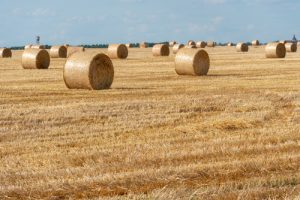
U.S. Sen. John Thune (R-SD) and U.S. Rep. Dusty Johnson (R-SD) on July 27 proposed bipartisan, bicameral legislation that would provide relief to American producers experiencing drought conditions during primary nesting season.
Sen. Thune sponsored the Conservation Reserve Program (CRP) Flexibility Act of 2021, S. 2484, with five original cosponsors, including U.S. Sens. Mike Rounds (R-SD), John Hoeven (R-ND), and Tina Smith (D-MN), while Rep. Johnson sponsored H.R. 4710 with five original cosponsors, including U.S. Reps. Tom Emmer (R-MN), Pete Stauber (R-MN), Kelly Armstrong (R-ND), and Angie Craig (D-MN).
“As a longtime supporter of the Conservation Reserve Program, I’m pleased to introduce this commonsense measure to help producers meet their forage needs during weather-related emergencies,” said Sen. Thune. “This legislation would build on my effort to increase CRP enrollment, which significantly benefits conservation efforts and wildlife habitat in our state.”
Under current statute, emergency CRP haying is not allowed until after the primary nesting season, which ends Aug. 1 in South Dakota, Minnesota, and North Dakota, according to a bill summary provided by the lawmakers.
The bill would address this by allowing emergency haying on CRP acres before Aug. 1 when certain conditions are met and in consultation with the state technical committee, the summary says.
“Unfortunately, almost every acre of South Dakota is currently experiencing drought,” Sen. Thune said. “We need to make sure USDA has the flexibility to improve producers’ access to greatly needed forage for their livestock during these difficult times.”
Rep. Johnson agreed, noting that as drought conditions fail to improve across the Midwest, producers need continued flexibility to avoid further liquidations.
“The CRP Flexibility Act would open up needed conservation acres to forage for livestock,” said Rep. Johnson. “This is a problem with a simple solution. I’m glad our legislation will promote conservation and provide flexibility to the committee on the ground to move up forage dates when disaster strikes.”



